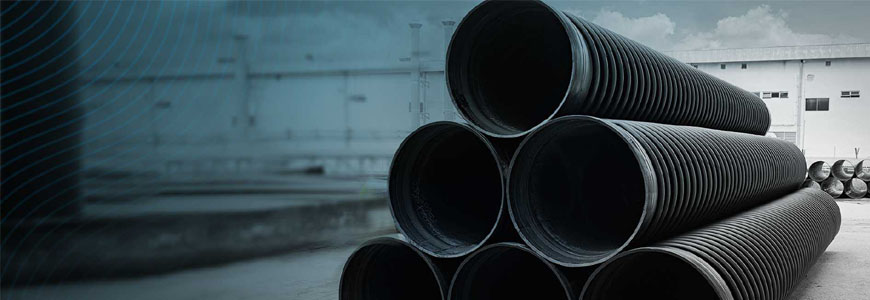
HDPE (High-Density Polyethylene) is a thermoplastic polymer made from petroleum. It is produced by the polymerization of ethylene under high pressure. The resulting material has a high strength-to-density ratio and excellent chemical resistance. HDPE pipe is known for its exceptional physical properties, including high tensile strength, impact resistance, and flexibility. It is also resistant to UV radiation, making it suitable for outdoor applications.
Advantages:
- Corrosion Resistance: HDPE pipe is highly resistant to corrosion, chemical reactions, and environmental factors, making it suitable for transporting various fluids, including water, chemicals, and gases.
- Lightweight: HDPE pipes are significantly lighter than traditional pipes like concrete or metal. This characteristic simplifies transportation, handling, and installation processes.
- Flexibility: HDPE pipes have a high degree of flexibility, allowing them to withstand ground movements and absorb stress. This flexibility makes them less prone to damage or failure due to external forces.
- Longevity: HDPE pipes have a long service life, typically ranging from 50 to 100 years. They are resistant to degradation and have excellent resistance to fatigue and crack propagation.
- Leak-Free Joints: HDPE pipes are joined using heat fusion techniques, creating seamless and leak-free connections. This eliminates the need for additional fittings and reduces the risk of leaks or failures at joints.
- Smooth Interior: HDPE pipes have a smooth inner surface, which reduces friction and improves flow characteristics. This attribute minimizes pressure losses and allows for efficient fluid transport.
Applications:
- Water Supply: HDPE pipes are widely used for water supply networks, including potable water distribution, irrigation systems, and wastewater conveyance.
- Gas Distribution: HDPE pipes are commonly used for the distribution of natural gas and other gases due to their superior performance and safety features.
- Industrial Systems: HDPE pipes find applications in various industrial sectors, such as mining, chemical processing, and oil and gas industries.
- Geothermal Systems: HDPE pipes are suitable for geothermal heat exchange systems, where they facilitate the transfer of heat from the ground.
- Landfill and Sewer Systems: HDPE pipes are used in landfill and sewer systems for efficient and reliable waste disposal and management.